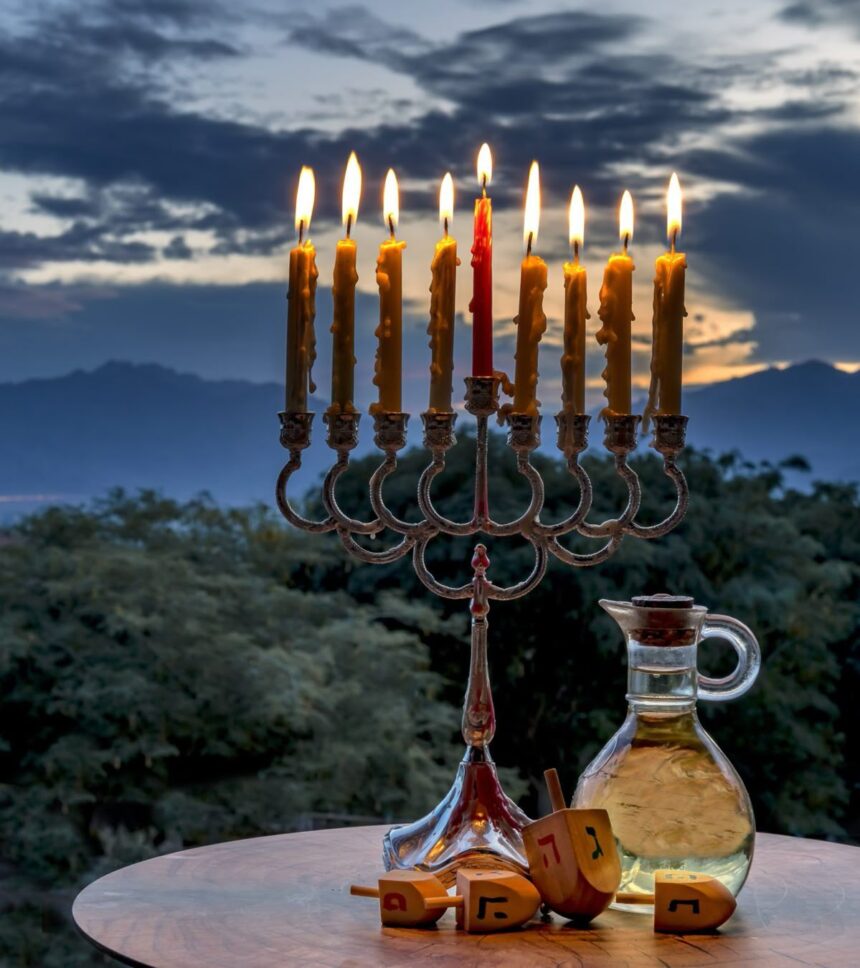10 Powerful Jewish Festivals That Enrich Your Life
Jewish festivals are more than mere celebrations—they are living expressions of history, faith, culture, and human values. Observed worldwide, these festivals reflect the Jewish people’s connection to God, their heritage, and the lessons passed down through generations. From solemn days of reflection to joyful celebrations of freedom, Jewish festivals offer insights into human behavior, societal values, and spirituality.
- History of Jewish Festivals
- Fascinating Facts About Jewish Festivals
- Timeline of Major Jewish Festivals
- Significance of Jewish Festivals
- Jewish Festivals and Daily Life
- Frequently Asked Questions (FAQs) About Jewish Festivals
- Wishing During Jewish Festivals
- Important Points to Remember
- Conclusion: The Life-Enriching Power of Jewish Festivals
History of Jewish Festivals
The history of Jewish festivals is deeply rooted in the Hebrew Bible (Tanakh) and Rabbinic traditions. Festivals mark historical events, agricultural cycles, and spiritual milestones. Many Jewish holidays originate from pivotal events in Jewish history:
Passover (Pesach): Commemorates the liberation of the Israelites from slavery in Egypt. The Exodus story is retold annually to emphasize freedom, justice, and resilience.
Rosh Hashanah: The Jewish New Year, marking the creation of the world and the start of the Ten Days of Repentance leading to Yom Kippur.
Yom Kippur: The Day of Atonement, devoted to reflection, repentance, and spiritual renewal.
Sukkot: Celebrates the Israelites’ 40-year journey in the desert and the harvest season, emphasizing gratitude and humility.
Hanukkah: Marks the rededication of the Second Temple and the miracle of the oil, symbolizing hope and divine intervention.
Purim: Commemorates the salvation of Jews from Haman’s plot, celebrating courage, identity, and joy.
These festivals were historically both spiritual and practical—synchronizing religious observance with agricultural and seasonal cycles while preserving Jewish identity through centuries of diaspora.
Fascinating Facts About Jewish Festivals
Jewish festivals follow the Hebrew lunar calendar, causing their dates to vary in the Gregorian calendar each year.
Many holidays, such as Rosh Hashanah and Yom Kippur, involve fasting or extended periods of prayer.
Festivals like Passover include symbolic rituals, such as the Seder meal, which retells historical narratives through food and storytelling.
Hanukkah, the Festival of Lights, is celebrated with menorah lighting, dreidel games, and traditional foods like latkes.
Jewish festivals blend spiritual, cultural, social, and educational significance, teaching lessons of morality, resilience, and community cohesion.
Timeline of Major Jewish Festivals
Here’s a yearly overview of the most widely observed Jewish festivals:
| Festival | Month (Hebrew Calendar) | Significance |
|---|---|---|
| Rosh Hashanah | Tishrei | Jewish New Year; reflection and prayer |
| Yom Kippur | Tishrei | Day of Atonement; fasting and repentance |
| Sukkot | Tishrei | Harvest festival; gratitude and temporary shelters |
| Simchat Torah | Tishrei | Celebration of the Torah and its teachings |
| Hanukkah | Kislev | Festival of Lights; miracle of the oil |
| Tu Bishvat | Shevat | New Year of Trees; ecological and agricultural focus |
| Purim | Adar | Celebration of courage, survival, and Jewish identity |
| Passover (Pesach) | Nisan | Commemorates Exodus from Egypt; freedom and resilience |
| Shavuot | Sivan | Giving of the Torah; harvest celebration |
Significance of Jewish Festivals
Jewish festivals carry multi-dimensional significance in spiritual, cultural, social, and personal contexts:
Spiritual Significance: Festivals foster a connection with God, emphasizing repentance, gratitude, and devotion.
Cultural Significance: They preserve Jewish identity, traditions, language, and heritage. Festivals like Purim and Hanukkah showcase storytelling, music, and culinary customs.
Social Significance: Festivals strengthen family bonds, communal solidarity, and intergenerational transmission of values.
Educational Significance: Rituals and narratives teach morality, courage, resilience, and historical awareness to younger generations.
Psychological Significance: Celebrating festivals reduces stress, promotes joy, and enhances emotional well-being through shared experiences.
Jewish Festivals and Daily Life
The observance of Jewish festivals profoundly impacts daily life:
Rituals and Reflection: Daily routines are paused for prayer, fasting, and ceremonial meals, promoting mindfulness and discipline.
Family and Community Bonds: Festivals encourage communal gatherings, storytelling, and celebration, fostering strong social networks.
Moral and Ethical Lessons: The narratives of Passover, Purim, and Hanukkah instill values like courage, resilience, and faith.
Charitable Acts: Giving to the needy (tzedakah) is central to festivals like Purim and Hanukkah, reinforcing empathy and generosity.
Cultural Continuity: Celebrations transmit language, music, art, and religious practices across generations, preserving Jewish heritage.
Frequently Asked Questions (FAQs) About Jewish Festivals
Q1: Why do Jewish festival dates change each year?
A1: Jewish festivals follow the Hebrew lunar calendar, which differs from the Gregorian calendar, so dates shift annually.
Q2: Are Jewish festivals only religious?
A2: No. While they have religious origins, they also celebrate cultural identity, history, and social unity.
Q3: Which Jewish festival involves fasting?
A3: Yom Kippur is the most significant fast, lasting 25 hours, focusing on repentance and spiritual purification.
Q4: What is the purpose of the Passover Seder?
A4: The Seder retells the Exodus story through symbolic foods, prayers, and readings, teaching lessons of freedom and resilience.
Q5: How do Jewish festivals impact society?
A5: Festivals encourage social cohesion, charitable behavior, cultural preservation, and emotional well-being.
Wishing During Jewish Festivals
Wishing others during festivals expresses goodwill and shared joy:
“Shanah Tovah! May this Rosh Hashanah bring health, joy, and prosperity.”
“G’mar Chatimah Tovah! Wishing you a meaningful Yom Kippur.”
“Happy Hanukkah! May the lights bring happiness and hope to your life.”
“Chag Sameach! Celebrate Passover with freedom and gratitude.”
These greetings strengthen human relationships and reinforce a sense of community and care.
Important Points to Remember
Jewish festivals integrate history, spirituality, and ethical teachings.
Rituals, fasting, and celebrations reinforce moral behavior, gratitude, and resilience.
Festivals involve both personal reflection and communal participation, emphasizing social harmony.
Observing festivals preserves cultural identity and continuity across generations.
Modern celebrations blend traditional rituals with contemporary life, making them relevant to all ages.
Conclusion: The Life-Enriching Power of Jewish Festivals
Jewish festivals are more than historical commemorations—they are transformative experiences that guide behavior, nurture relationships, and strengthen cultural identity. Whether through the joy of Hanukkah, the solemnity of Yom Kippur, or the storytelling of Passover, these festivals teach courage, resilience, gratitude, and unity.
By participating in Jewish festivals, individuals and communities connect with history, spirituality, and one another, enriching life with meaning, ethical guidance, and joy. Ignoring these traditions can lead to cultural disconnection and loss of communal bonds, while embracing them nurtures both personal growth and societal harmony.
Jewish festivals demonstrate how celebrations can be human-centric, life-affirming, and socially transformative, offering lessons that resonate far beyond religious boundaries. They remind us that festivals are not just days on a calendar, but opportunities to connect, reflect, and celebrate life itself.
According to the Hebrew Bible, The Land of Israel is the promised homeland to Jews by God. Festive holidays are an integral part of the Jewish life, just as in the case of any other community across the world. Festive rituals and traditions have kept the Jewish identity and history alive since ages. They contribute to their sense of community and belonging, apart from serving as reminders of significant historic events.
Most of the Jewish festivals can trace their roots and origin to important religious happenings, which contributed to their evolvement as a religious community. These festivals are related to religious events dating back to historic times. The most important Jewish festivals are the Sabbath – when Jews are forbidden to work and the three pilgrimage festivals – Passover, Shavuot and Sukkot. Of the three, Passover signifies the freedom of Jews from their enslavement by Egyptians, while
Shavuot commemorates the anniversary of the day God gave the Torah to Moses and the Israelites at Mount Sinai. Sukkot is one of the three biblical pilgrim festivals, when it was traditional for Jews to visit the Temple in Jerusalem. The other main festivals of the Jews are the two holy days – Rosh Hashanah, commonly referred to as the Jewish New Year; and Yom Kippur, also known as the Day of Atonement. Hanukkah is another major Jewish festival, which extends over a week, like Passover.
| Jewish Festivals Calendar 2025 | ||||||||||||||||||||||||||||||||||||||||||||||||||||||||||||||||||||||||||||||||
| ||||||||||||||||||||||||||||||||||||||||||||||||||||||||||||||||||||||||||||||||








